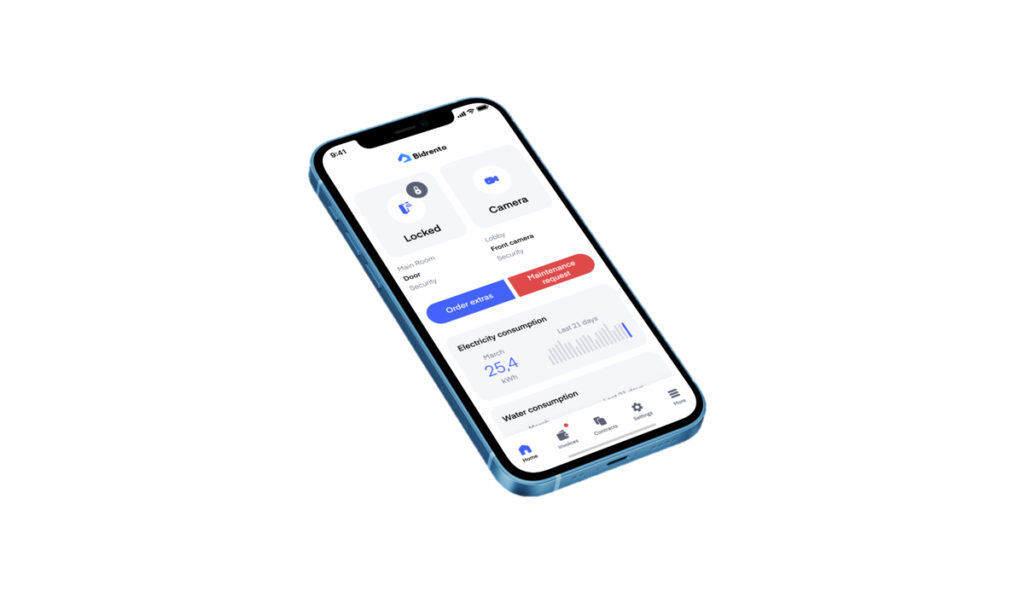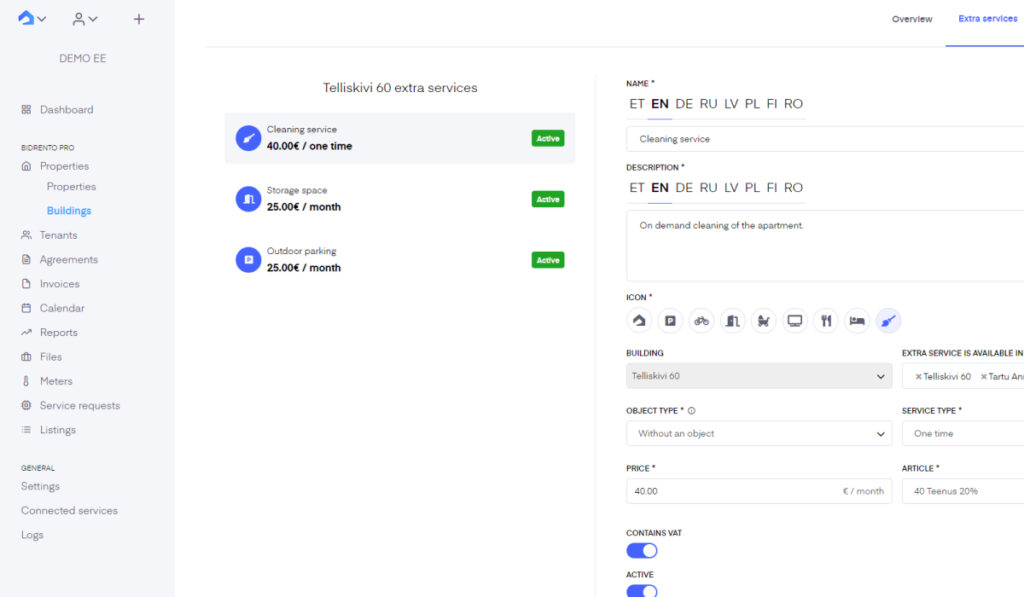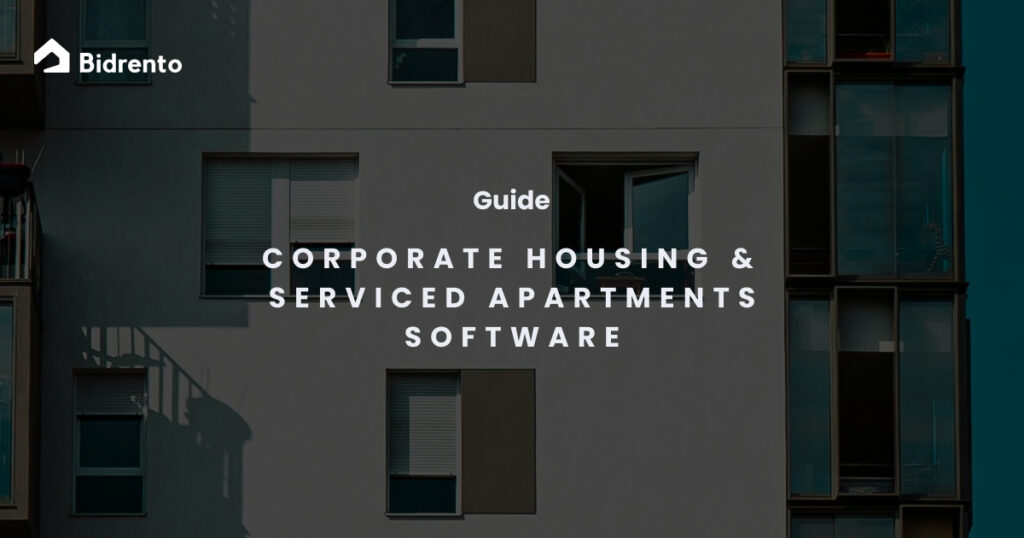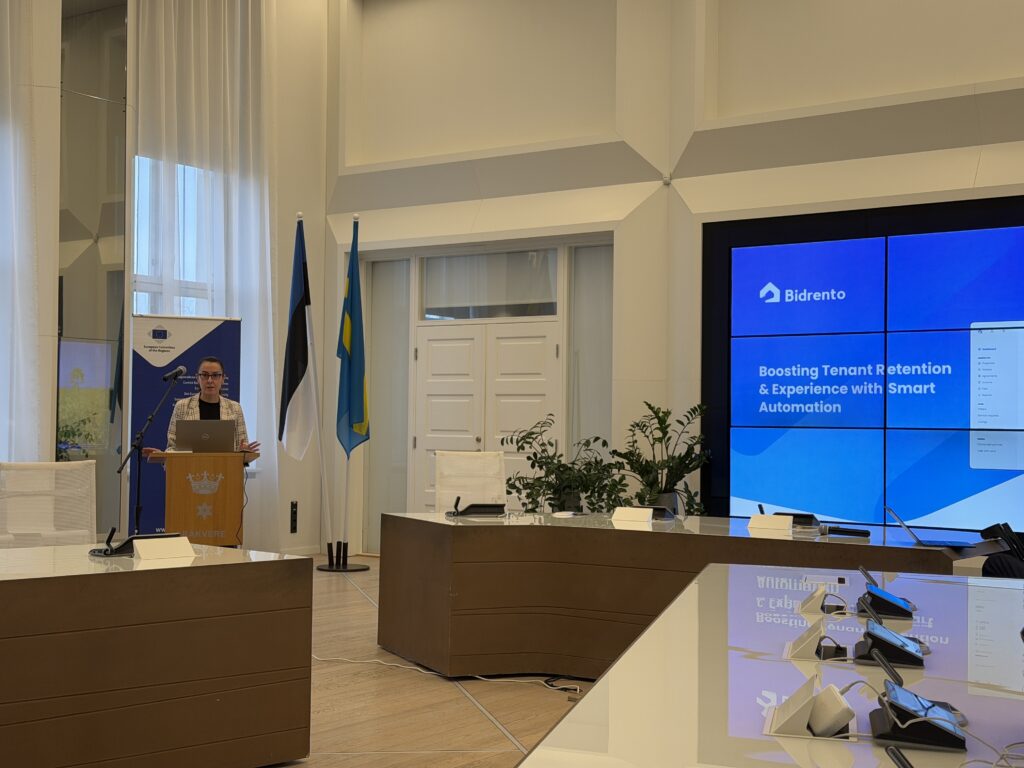Managing corporate housing is like a puzzle with moving pieces. Missing keycards, mismatched tenant arrangements, and forgotten inventory lists can derail anyone. That is why companies across logistics, retail, and other sectors use corporate housing software.
Why today's corporate housing is different
These days, corporate housing means more than providing a place to sleep. Companies often manage many different types of units with different amenities. Some for a single employee, others with many beds or rooms assigned to different tenants.
The length of the stay also varies. A study in Portugal found that 42% of stays at corporate housing providers last less than a week. Meanwhile, 36% are medium- and long-term.

Corporate tenants, like employees and business travelers, appreciate a homely, effortless experience.
Without a clear system, it’s easy to lose track of who stays where and for how long. Security issues arise when keys or access codes change hands without proper documentation. Inventory, like furniture or appliances, gets misplaced, often unnoticed until someone needs it.
Contracts and communication need more attention.
When it comes to contracts, the problem gets even bigger. Managers must manually create agreements, track lease terms, and share documents with tenants. This takes time, and mistakes are common. Also, tracking expenses and managing the properties can be overwhelming.
Communication is another sticking point. Staff or tenants need a simple way to report maintenance issues or get updates. Without the right tools, this can lead to frustration on all sides.

A tenant app can help avoid costly errors of miscommunication.
If companies offer extra services to tenants or co-tenants, it adds complexity. They must now generate and track monthly invoices.

Software like Bidrento makes offering extra services seamless for corporate housing.
The Common Problems of Corporate Housing
Outdated management methods make these challenges even harder:
- Lost Keys: Without tracking, keys or keycards often go missing. This creates security risks and may lead to expensive lock replacements.
- Messy Contracts: Manually handling agreements means errors, missed deadlines, and forgotten details.
- Inventory Chaos: It's easy to misplace items, like beds or tables, without a clear system.
- Unclear Costs: Without proper tracking of expenses, hidden costs can infiltrate budgets.
- Communication Breakdowns: Tenants need a simple way to report problems. But old systems often make this hard.
- Building Partnerships: Creating effective relationships with property owners from whom you lease units.
These issues are a headache. They waste resources and frustrate employees.
All these problems arise as the corporate housing market is reborn. With revenue numbers in markets such as the UK (£1.2 billion in 2024) returning to pre-pandemic levels.
What to Look for in Corporate Housing Software
A good corporate housing software should simplify every step of the process. It should allow managers to:
- Divide apartments into subunits, like beds or rooms, and assign tenants easily.
- Access management to guarantee security.
- Help you to include all-important details in all contracts automatically.
- Create and share digital contracts quickly using templates.
- Track housing expenses clearly and generate invoices if needed.
- Enable tenants to report maintenance issues and receive updates.
- Manage and maintain relationships with property owners from whom you lease properties.
Bidrento: A Simple Solution
With Bidrento, you can tackle these problems with ease. One system to handle subunit management, access control, inventory control, and tenant communication. It gives businesses the tools they need to save time, reduce stress, and focus on what matters.
Want to see how Bidrento works? Sign up for a free demo here.
Current Challenges in Corporate Housing

Corporate housing management often goes unnoticed. But it causes disruptions for companies and employees when issues arise. In the end, companies need staff accommodations to run smoothly. Yet, they encounter challenges that often complicate this process.
Key Challenges in Corporate Housing:
- Supply Shortages: A surge in demand has worsened the supply squeeze. It's now hard to find suitable housing.
- Rising Costs: Supply-chain issues and inflation have raised corporate housing costs, impacting budgets.
- Sustainability Expectations: There is a growing demand for eco-friendly corporate housing. This increases pressure to adopt sustainable practices.
- Operations: You need a system to manage reservations, billing, and maintenance across properties. This prevents errors and delays.
1. Supply Shortages
Demand for corporate housing fluctuates. But, it often now exceeds supply, causing shortages.
This imbalance makes it hard for companies to find good housing for their employees. It causes delays and higher costs. Factors contributing to this shortage include:
- Underbuilding: After the Great Recession, new home construction fell sharply. This caused a long-term housing deficit. In Poland, over 207,000 new flats were built in 2019. That matched the record set in the 1970s, a decade of booming housing construction. Yet, this growth has not been enough to meet the increasing demand.
- Regulatory Constraints: Strict zoning laws and long approval processes slow new housing developments. This worsens the supply issue. In Berlin, activists held a vote to expropriate 240,000 homes from big investors. This was due to soaring rents. This highlighted the tension between housing demand and regulations.
- Infrastructure Limitations: Inadequate infrastructure, such as sewage, can halt housing projects. For example, in Ireland, a sewage crisis has stalled housing construction.
2. Rising Costs
Inflation and supply chain disruptions have led to increased costs in corporate housing. Companies face higher expenses due to:
- Material Price Increases: Construction materials, like steel and drywall, have soared in cost. Steel mill products rose 18% year-on-year in 2022.
- Labour Shortages: A lack of skilled workers raises costs. It delays projects and drives up wages. Labour shortages have hit the construction industry hard. This has hurt housing availability and affordability.
- Disruptions: Delays and higher shipping costs hurt the availability of building materials. This leads to higher costs for new corporate housing construction.

3. Sustainability Expectations
Demand for eco-friendly housing is rising. This is pressuring us to adopt sustainable practices. Expect companies to:
- Use Green Building Practices: Use sustainable materials and energy-efficient designs. This reduces environmental impact.
- Follow Environmental Regulations: Adhering to laws that mandate sustainable construction and operation practices.
- Meet CSR Goals: Align housing practices with the company's sustainability commitments.

A good example is Cityus. It offers serviced apartments in Switzerland and France. They manage energy use, analyze emissions, and offer eco-friendly options to residents. Successfully positioning themselves as a premium provider while caring for the environment.
4. Operational Complexities
Managing corporate housing involves coordinating many aspects, including:
- Booking, Reservations, and Occupancy: Make sure units are available when needed. Also, keep occupancy records accurate. After the post-pandemic surge, EMEA corporate housing occupancy rates are stable. There is strong demand for relocations and business travel.
- Maintenance and Repairs: Keep properties in good condition. This ensures a safe, comfortable environment for employees. Here are a few tips from Capri Temporary Housing to help you along the way.
- Billing and Payments: Handle transactions well to avoid disputes. This maintains good relations with your customers. You can use software like Bidrento to automate your invoicing, payments, and billing all in one go.
How Bidrento Helps You
With Bidrento, you can simplify your corporate housing management. So you can focus on other aspects of your business.
- Subunit Management: Split apartments into rooms or beds. Easily assign each to specific tenants or co-tenants.
- Key Tracking: Know who has which keys. It ensures security and simplifies check-ins and check-outs.
- Inventory Management: Keep a list of all items in each unit. It must be auto-added to contract appendices and shared digitally.
- Digital Contracts: Use your templates to quickly create contracts. Send them for digital signing and share them with tenants.
- Expense Tracking: Record and analyze property-related expenses. This helps you control accommodation costs.
- Tenant App: Empower tenants to report maintenance issues, receive notifications, and access documents. All through a simple mobile app.
Why Use Booking Software for Corporate Housing

Booking housing for employees can take a lot of time and lead to mistakes if done manually. There are many things to manage. You must check which units are free. Then, meet tenants' needs and handle different rental periods. Using software for booking makes this easier and helps avoid common problems.
1. Problems with Booking Corporate Housing
- Knowing What’s Available: It’s hard to keep track of which units are free without a clear system. Mistakes can happen, like booking the same unit twice or leaving one empty by accident.
- Mixing Short and Long Stays: Some employees need a place for a few days, while others stay for months. It can be tricky to organize these different schedules.
- Meeting Employee Needs: Workers may have specific requests. They might want to live close to the office or need certain amenities. It’s hard to keep track of these without a proper system.
- Slow Communication: Delays occur if you do not quickly react to booking changes or last-minute requests.
2. How Booking Software Helps
- Clear View of Units: Software shows what’s free, booked, or under maintenance in real time, so there’s no confusion.
- Handles Different Stays: The system can easily organize short and long stays. It will keep everything running smoothly.
- Let Tenants Choose: Employees can search for places based on their needs, like location or facilities. This speeds up the process.
- Automatic Updates: The system sends alerts about upcoming bookings and changes. It keeps everyone informed of important dates.
3. How Bidrento Makes Booking Easy
Bidrento offers corporate housing software that simplify bookings for you. Here’s how it works:
- Live Updates: Bidrento shows which units are available or booked live. So, managers always know what's free.
- Easy Assignments: Managers can quickly assign tenants to rooms or apartments. The system checks dates and avoids conflicts.
- Simple Communication: Bidrento sends automatic messages about bookings and changes to everyone. That way, no one misses important updates.
- Digital Storage: Contracts and booking details are online. They are easy to find and share.
- Extra Services: Tenants can use Bidrento to book services, like cleaning or laundry.
Why This Matters
Using booking software saves time and reduces mistakes. Employees get suitable housing. Managers spend less time fixing problems. Tools like Bidrento make managing corporate housing easier and less stressful for everyone.
The Impact of Flexible Work Trends

The move towards different flexible work arrangements has reshaped corporate housing across Europe. This change presents several challenges for companies managing employee accommodations.
1. Unpredictable Housing Demand
- Fluctuating Occupancy Rates: It's now hard to predict housing needs. Employees split time between remote and in-office work. Traditional models relied on consistent occupancy. But flexible schedules disrupt this stability. This can lead to overbooking or underutilization of properties.
- Mid-Term Stays: A rise in project-based work has boosted demand for mid-term housing. This trend challenges providers used to short- or long-term leases. It requires more adaptable housing solutions.
2. Operational Challenges
- Resource Allocation: Properties with low occupancy need more maintenance, cleaning, and admin. Companies must adapt to these fluctuations to maintain operational efficiency.
- Communication and Coordination: Coordinating housing logistics for a dispersed workforce complicates communication. Increasing the risk of errors and misunderstandings.
3. Financial Implications
- Cost Management: Inconsistent occupancy harms revenue. It complicates budgeting and cost control. Companies may face financial strain from unoccupied units or last-minute housing needs.
- Pricing Strategies: To be competitive, you must adjust pricing for short, flexible stays. This requires careful planning to cover costs.
Addressing the challenges
To navigate these complexities, companies can put in place strategic measures:
- Flexible Leasing Options: Adaptable lease terms can meet diverse employee needs. This ensures optimal property use.
- Advanced Booking Solutions: Modern booking platforms track availability in real-time. They also manage reservations seamlessly. Reducing errors and improving collaboration.
- Data-Driven Decision Making: Use occupancy patterns and employee preferences to forecast demand. This will help to tailor housing solutions.
By adopting these strategies, companies can manage the challenges of flexible work. This will keep corporate housing a valuable asset for their workforce.
Corporate Housing Sustainability Practices

Companies in Europe are increasingly focusing on making their corporate housing more eco-friendly. This shift aims to reduce environmental impact and meet new regulations.
1. Energy Efficiency
- Upgrading Buildings: Many companies are adding insulation and energy-saving windows. This cuts heating and cooling needs. These upgrades help lower energy use and costs.
- Using Renewable Energy: Some corporate housing now uses solar panels or wind turbines. They generate clean energy and reduce reliance on fossil fuels.
2. Waste Reduction
- Recycling Programs: Implementing recycling in corporate housing helps decrease waste sent to landfills.
- Reducing Single-Use Plastics: Encouraging the use of reusable items minimizes plastic waste.
3. Water Conservation
- Installing Efficient Fixtures: Low-flow showers and toilets help reduce water usage.
- Using Smart Irrigation: Smart water plants only when needed, conserving water.
4. Sustainable Materials
- Eco-Friendly Furniture: Choosing furniture made from sustainable materials supports the environment.
- Green Building Materials: Using non-toxic paints and recycled materials promotes healthier living spaces.
5. Transportation
- Promoting Public Transit: Housing near transit boosts its use, cutting car emissions.
- Offering bike storage and sharing programs promotes eco-friendly commuting.
Challenges
- Balancing Costs: Sustainable practices can be costly. So, some companies struggle to adopt them.
- Finding Green Housing: There may be limited options for eco-friendly corporate housing in certain areas.
- Meeting Regulations: Keeping up with different environmental laws across Europe can be complex.
Solutions
- Partnering with Green Providers: Eco-friendly partners can help companies meet their goals.
- Employee Education: Teaching employees about sustainable living encourages eco-friendly habits.
- Using Technology: Smart solutions can track and cut energy and water use. They aid conservation efforts.
Companies can make their corporate housing more sustainable with these practices. That will benefit both the environment and their employees.
Making Data-Driven Decisions

Managing corporate housing involves many tasks. These include tracking bookings, maintenance, and tenant needs. Using data can help make these tasks easier and more efficient.
1. Understanding Occupancy Rates
- Tracking Usage: Companies can use occupancy data to find patterns and improve planning. For example, if certain times of the year are busier, they can prepare for that.
- Adjusting Resources: Knowing occupancy trends helps allocate cleaning and maintenance staff better.
2. Learning Tenant Preferences
- Collecting Feedback: Asking tenants about their likes and dislikes provides valuable information. This feedback can guide improvements in housing services.
- Personalizing Services: Knowing tenants' preferences lets companies improve their services. This makes tenants happier and more comfortable.
3. Managing Costs
- Monitoring Expenses: Tracking spending on utilities and repairs can find savings.
- Budget Planning: Past expense data helps create accurate future budgets.
4. Forecasting Demand
- Predicting Needs: Analyzing data helps forecast when more housing will be needed. This allows companies to prepare in advance.
- Avoiding Shortages: By anticipating demand, companies can ensure enough housing. This prevents shortages.
5. Improving Maintenance
- Scheduling Repairs: Equipment and property data helps plan maintenance. It avoids unexpected breakdowns.
- Extending Lifespan: Regular, data-based maintenance can prolong appliances and facilities. It will save money in the long run.
Making Corporate Housing Work Better
Corporate housing helps keep employees comfortable and businesses running. But without the right tools, it can get messy. Problems like lost keys, unclear bookings, or unexpected costs waste time and money.
Using tools like corporate housing software makes managing housing simpler. These tools handle the hard work. They track units, make contracts, and help tenants report issues. Employees get housing without delays. Managers spend less time solving problems.
Corporate housing software like Bidrento go one step further. They bring everything into one place. It covers assigning tenants, tracking keys, managing inventory, and organizing bookings. They even offer features like tenant apps and automated billing, which save time and keep things running smoothly. Book a free demo here.
Investing in better housing solutions saves companies money, reduces errors, and helps employees. With a smarter system in place, corporate housing becomes less of a hassle.






